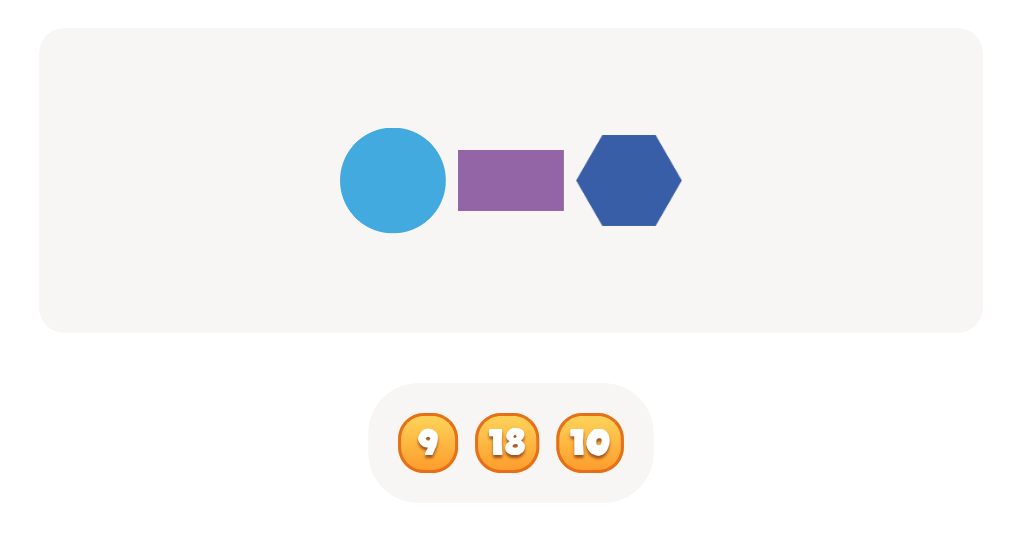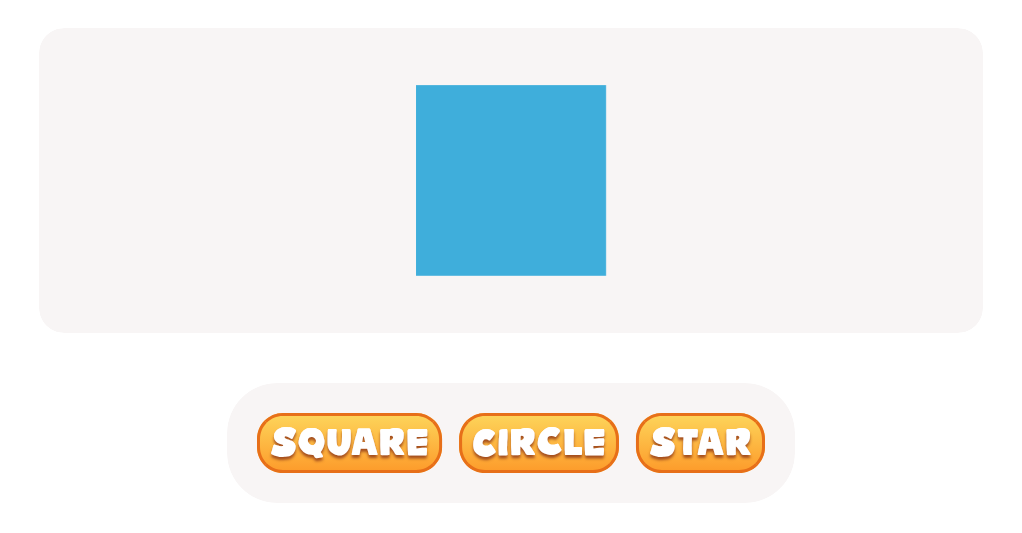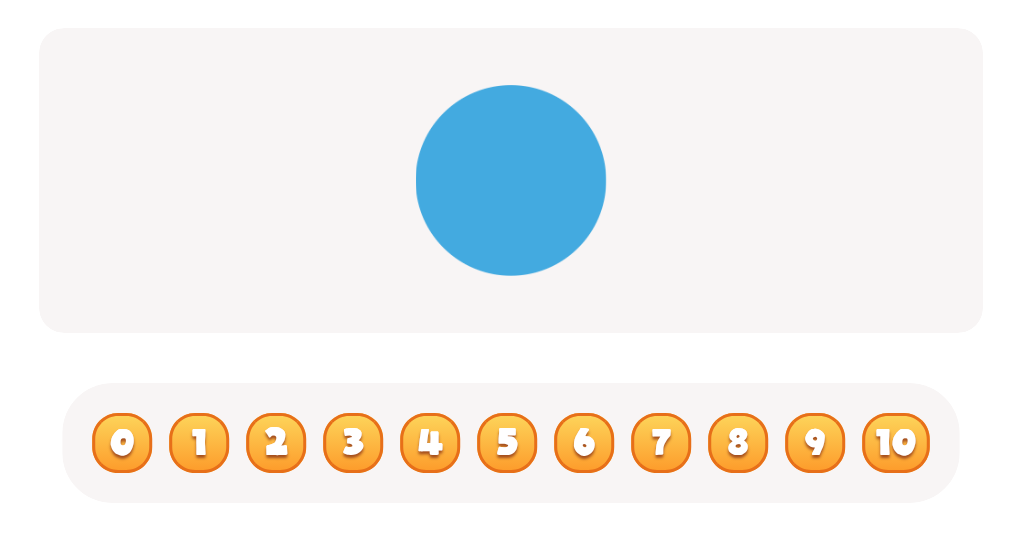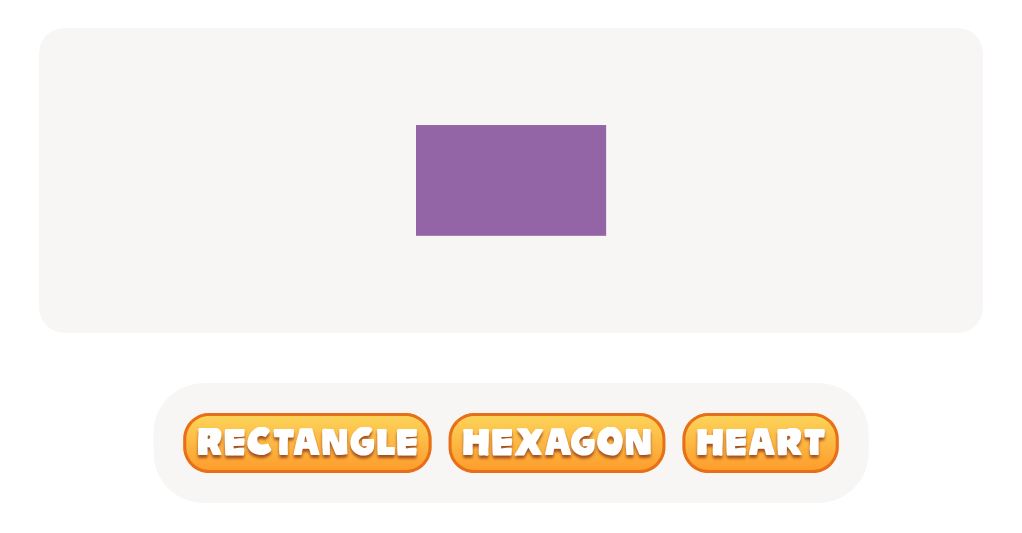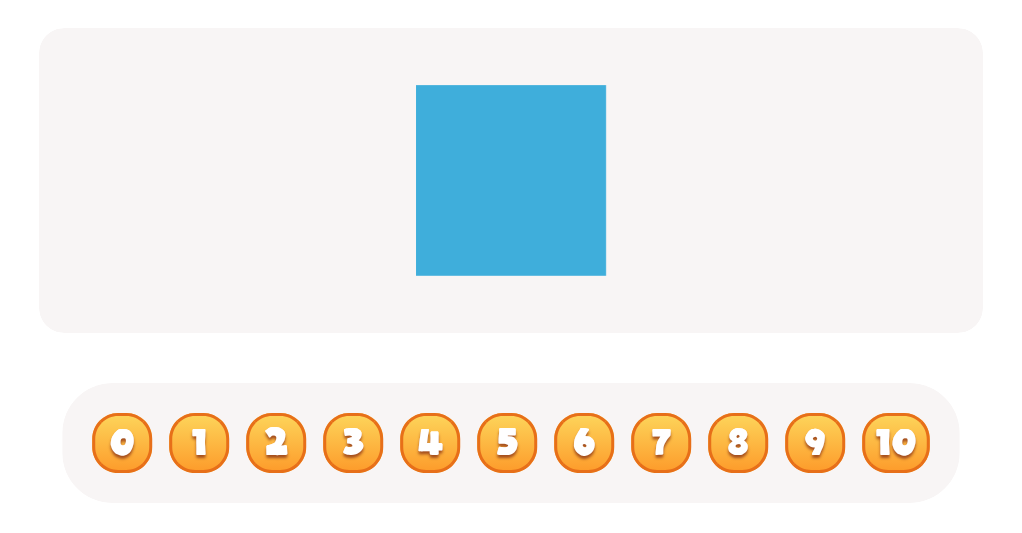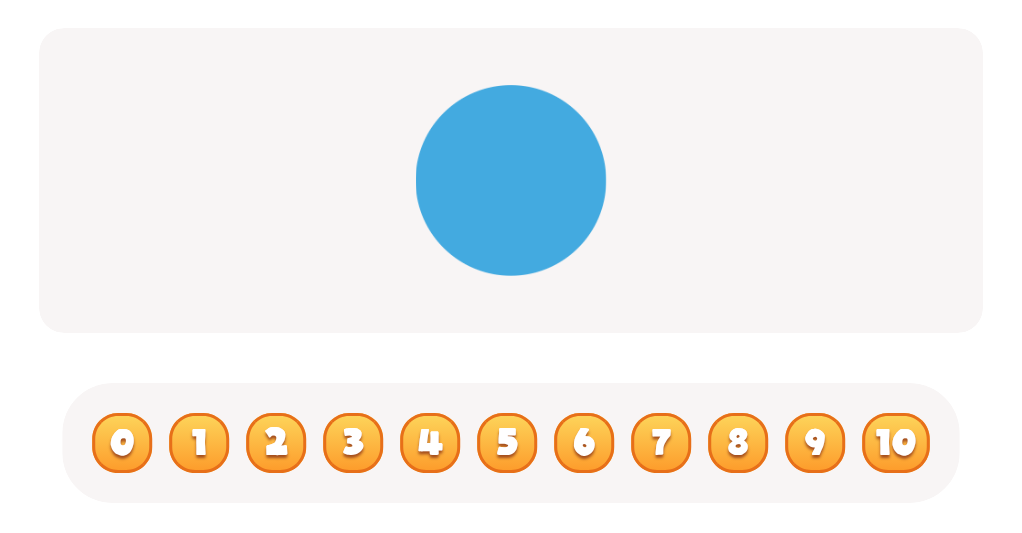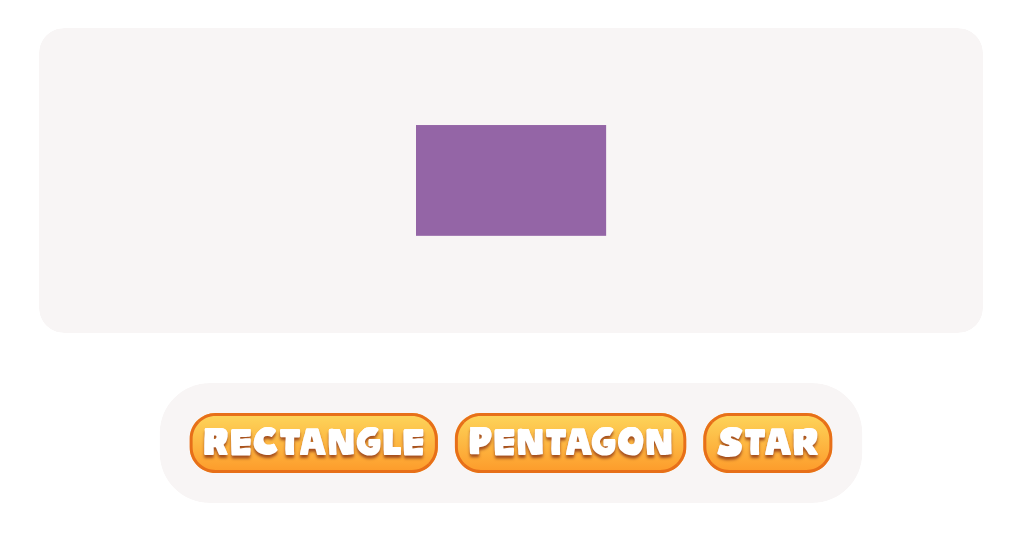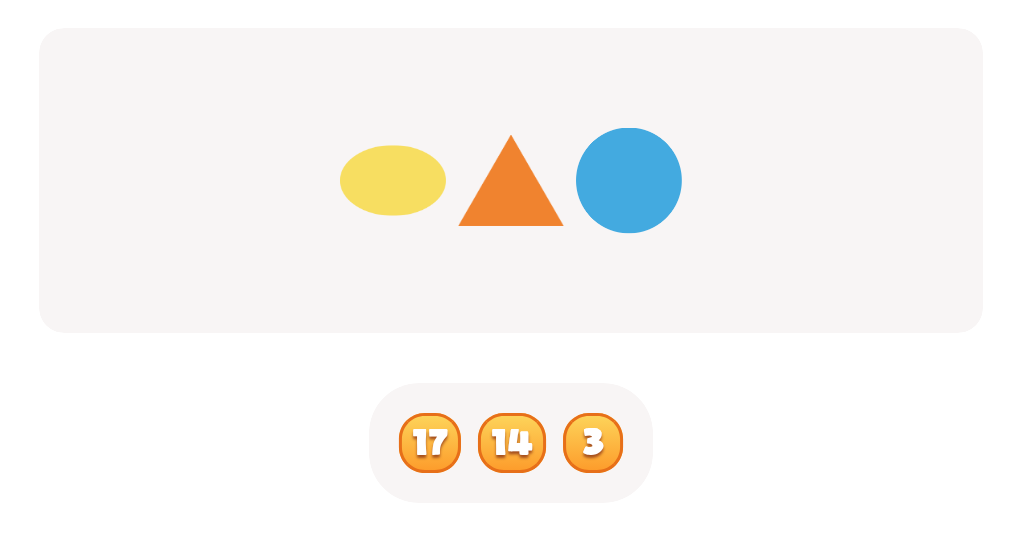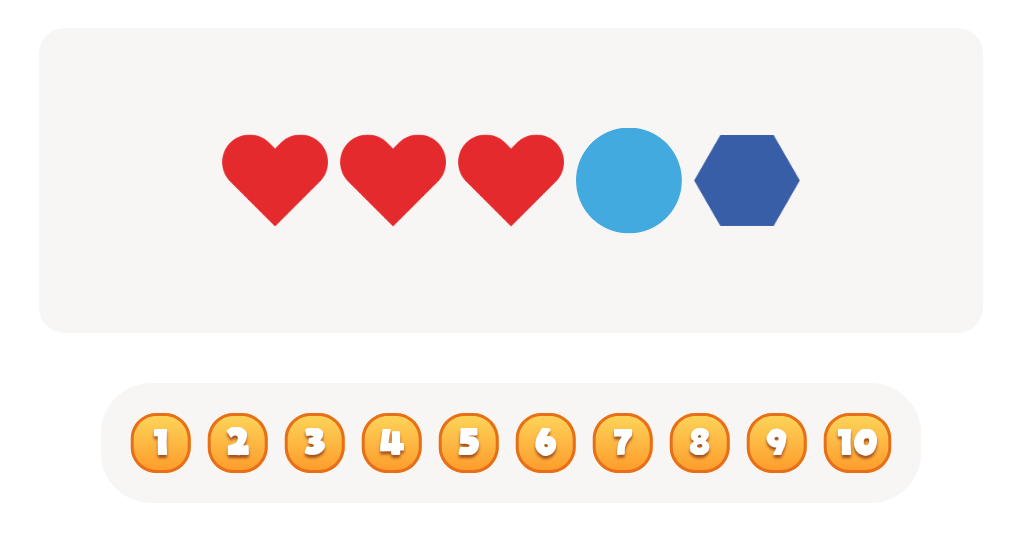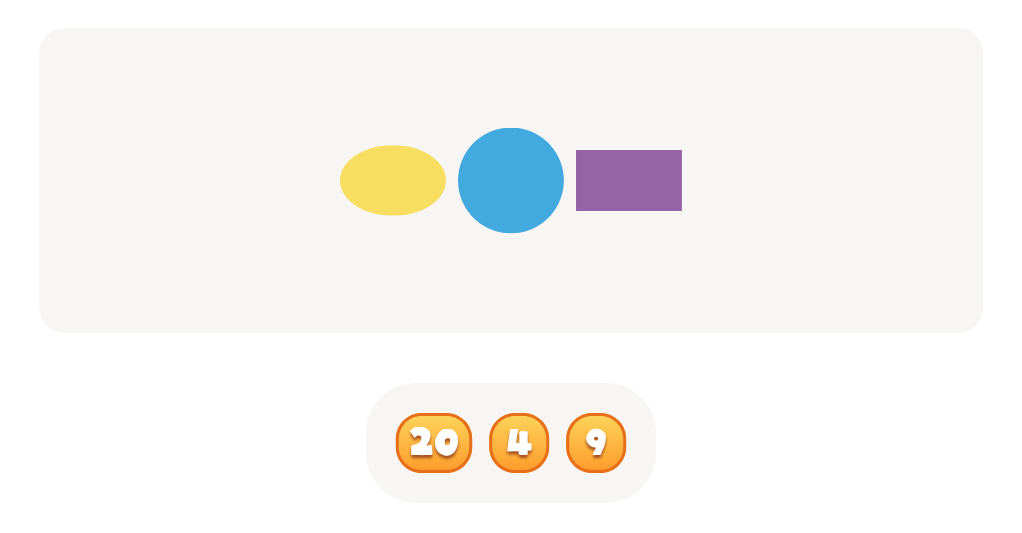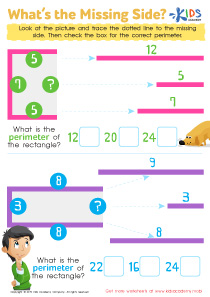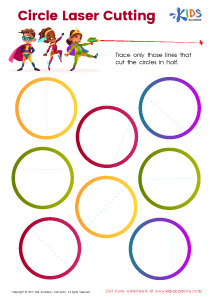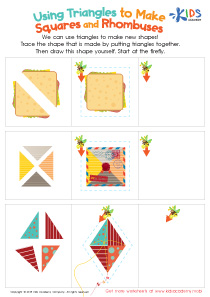Shape identification Normal 2D Shapes Worksheets for Ages 4-7
4 filtered results
-
From - To
Unlock the world of geometry for your young scholars with our Shape Identification Normal 2D Shapes Worksheets designed for ages 4-7. These engaging and educational worksheets help children master the fundamental skill of recognizing and naming common 2D shapes, such as circles, squares, triangles, and rectangles. With a variety of fun and interactive activities, kids will boost their shape recognition, fine motor skills, and cognitive development. Ideal for early learners, these worksheets are perfect for classroom use or homeschooling, providing a solid foundation for future math success. Let your child discover the joy of learning shapes in a fun and effective way!
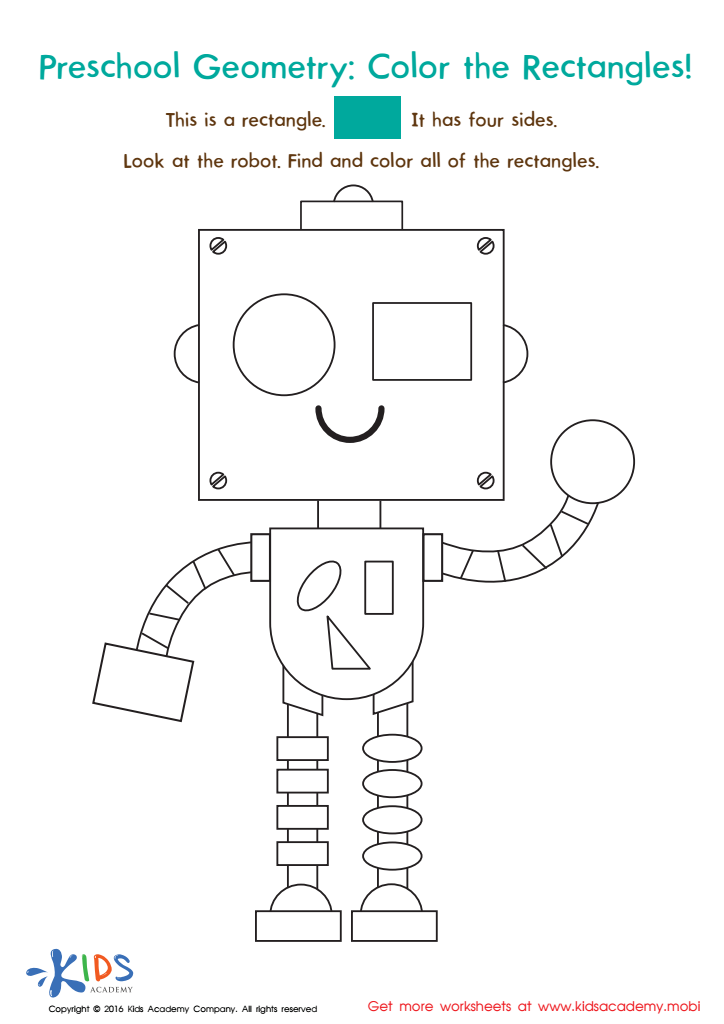

Geometry Worksheet
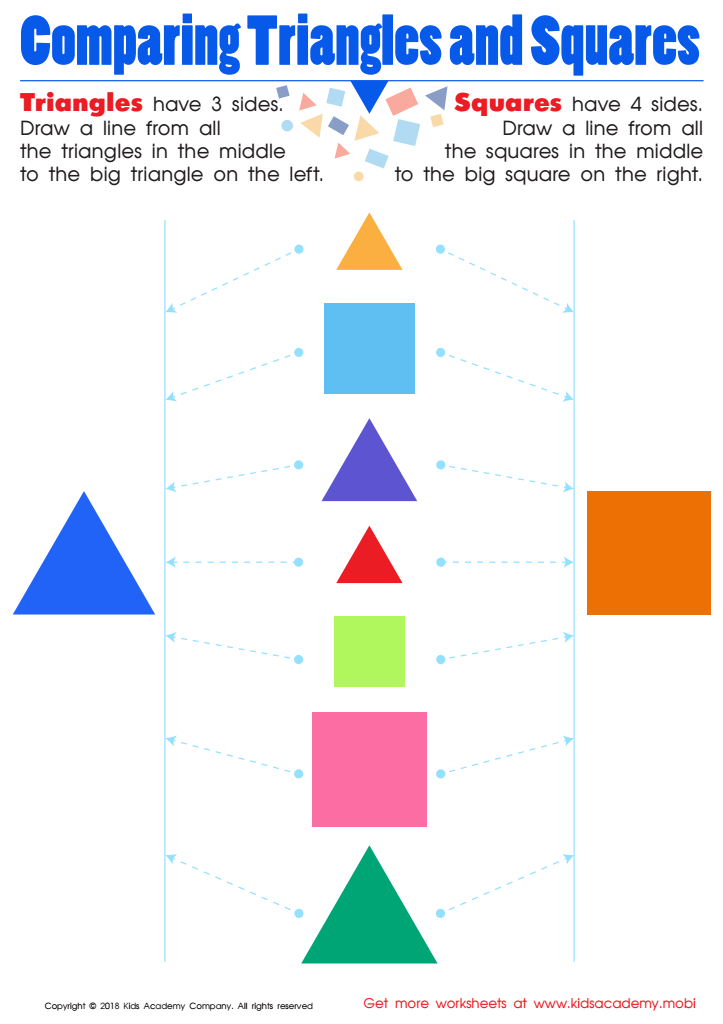

Comparing Triangles Squares Worksheet
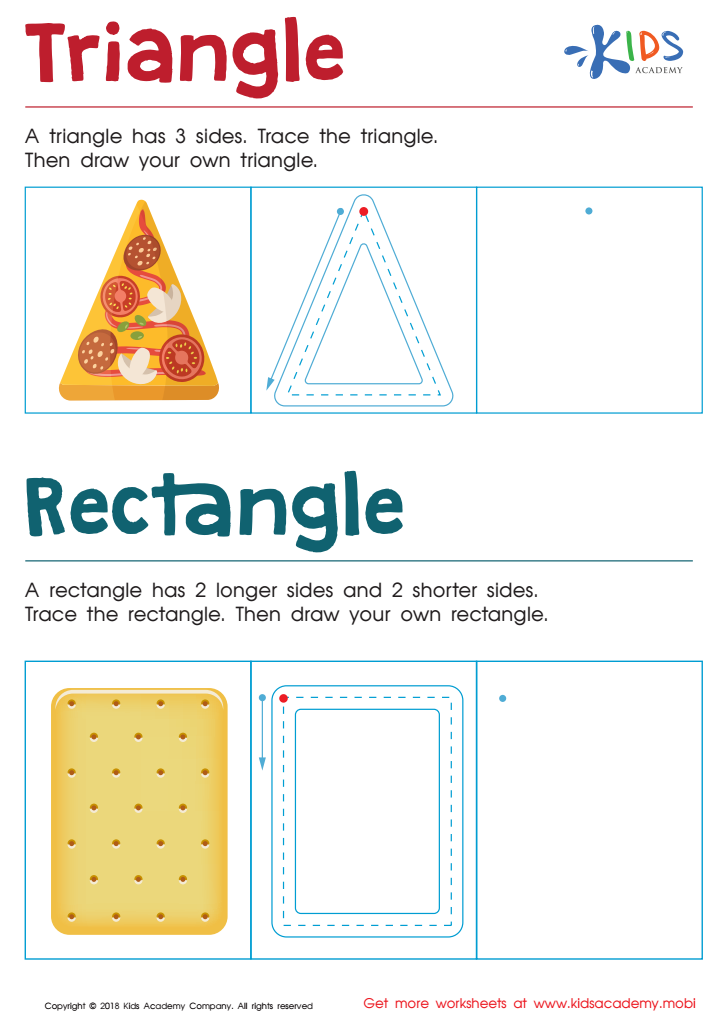

Triangle Rectangle Worksheet
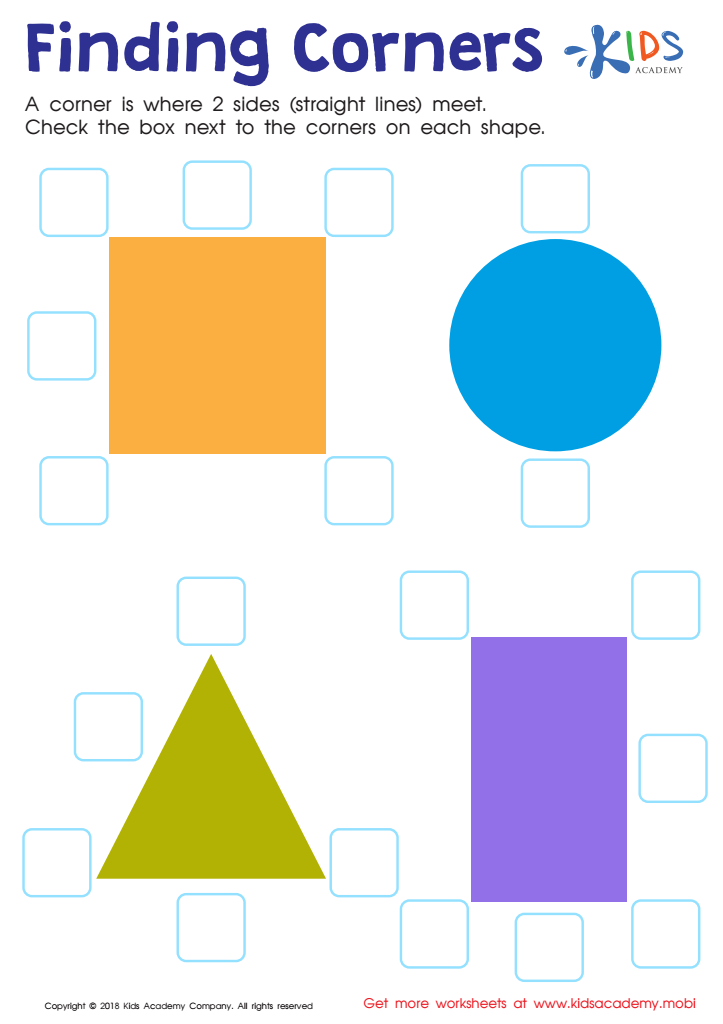

Finding Corners Worksheet
Shape identification in the early years is crucial for children's cognitive and academic development. For ages 4-7, understanding normal 2D shapes—like circles, squares, triangles, and rectangles—lays the groundwork for more complex mathematical concepts.
Firstly, shape identification enhances visual-spatial skills. Children learn to recognize and differentiate objects based on their attributes, aiding in better interpretation and understanding of the world around them. These skills also translate into improved abilities in subjects such as geometry and later physics.
Secondly, grasping basic shapes contributes to learning mathematics at a foundational level. Concepts such as symmetry, geometry, and numbers often incorporate shapes. Recognizing that shapes can compose larger patterns or objects can also introduce basic addition and subtraction principles.
Finally, identifying shapes supports language development and cognitive growth. When children describe the properties of shapes—like the number of sides or angles—they expand their vocabulary and practice critical thinking. This ability to articulate differences and similarities enhances overall communication skills.
Parents and teachers can foster this aspect of learning through engaging activities, like drawing, puzzles, and shape-based games. By encouraging early shape identification, adults play a pivotal role in supporting a child's comprehensive learning journey, setting the stage for future academic success.
 Assign to My Students
Assign to My Students
